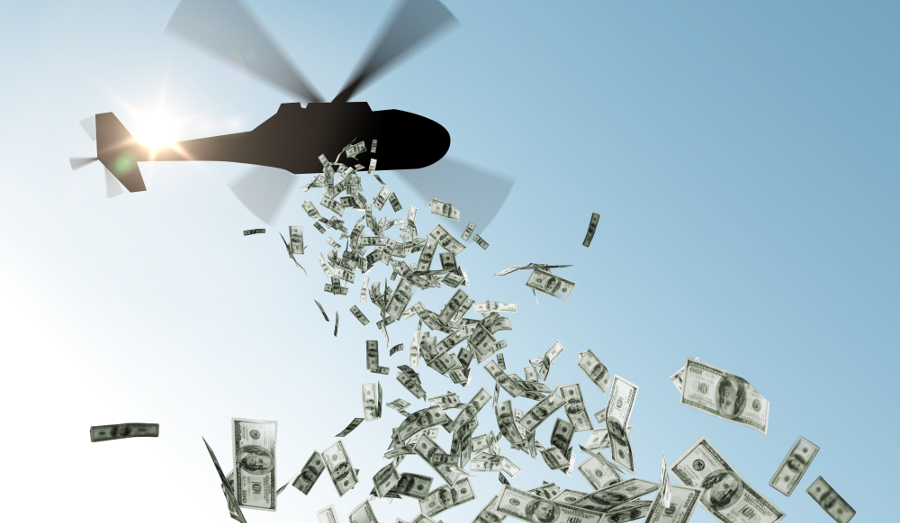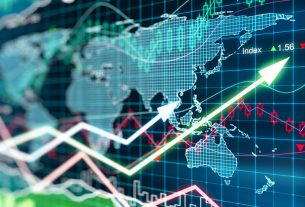The raft of Federal Reserve actions to bail out Wall Street had many people thinking that we’re going back to the days of 2008, when big banks got bailed out while the little people were forced to suffer. Major banks received trillions of dollars worth of federal assistance to stay afloat, then turned around and put the screws to their creditors, foreclosing on home after home. This time around, things look a little different.
The Trump administration is proposing a $1 trillion fiscal stimulus rescue package to help Americans, as many are now out of work due to their businesses being forcibly closed by the government, or due to their workers being forced to stay home either through illness or by government fiat. Details of the stimulus plan are still being worked out, but they could include sending every American adult a $1,000 check. What would that mean?
The obvious benefit to a check from the government is that every household would have at least $1,000 more money to spend. For many who are out of work and in need of paying rent, mortgages, credit card debt, or buying food, that money could be a lifesaver. But while the benefits are obvious, nobody really seems to consider the drawbacks.
Inflation
While a direct injection of money directly to individuals isn’t as immediately inflationary as injecting money into the banking system, all that money will eventually make its way back to the banking system over time. As businesses take in those receipts, they’ll deposit them, inflating the amount of bank deposits, and giving banks a larger monetary base with which to pyramid more loans. Over time that will lead to inflation and higher prices.
What to Buy?
Many people are undoubtedly dreaming of buying that guitar they always wanted, or a new rifle, or maybe some new clothes. But with so many stores shutting down, and online retailers like Amazon prioritizing “essential” goods, will there even be anything to spend that money on? Much of the money will likely go to spending on food and medicine, areas of the economy that were already exempt from the shutdowns. It won’t go to help restaurants and small businesses, as they have largely closed up shop.
It may not even help those paying mortgages, as the administration is floating the idea of a mortgage payment moratorium for a couple of months. So much of that money may just end up sitting in bank accounts and not doing what the government intended it to do.
Higher Taxes
Money doesn’t grow on trees, and that $1 trillion will have to come from somewhere. Since the government is already running trillion-dollar annual budget deficits, that money is going to have to come as a result of more debt issuance. Of course, we already know that the Fed is prepared to buy $500 billion of Treasury debt, so this is just plain old debt monetization.
This will shoot the national debt to over $24.5 trillion, and increase the amount of interest that the federal government will have to pay each year. It will seriously erode the government’s already poor financial position, and require more and more revenue in future years.
That need for increased revenue will mean higher taxes across the board, whether it’s from personal income, corporate income, or investments. Average Americans may not feel the pinch immediately as they look at that extra $1,000 in their bank accounts, but they’ll pay for that stimulus later down the road.
This article was originally posted on Goldco.





